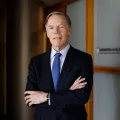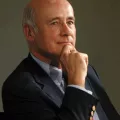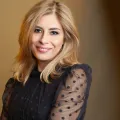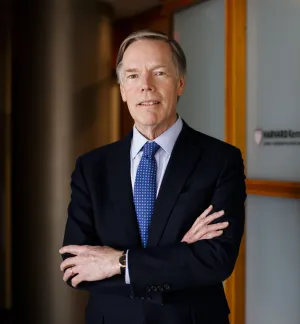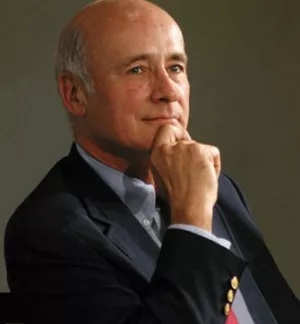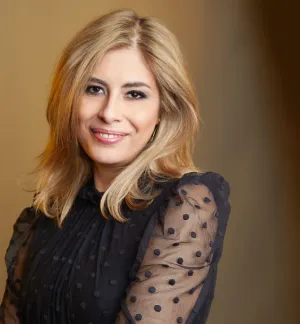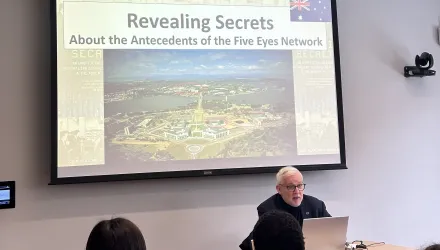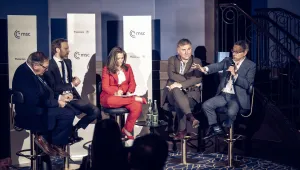Featured in the Belfer Center Spring 2021 Newsletter »
On April 26th, the Future of Diplomacy Project and Carla Dirlikov Canales hosted Ambassador (ret.) Caroline Kennedy, former U.S. Ambassador to Japan (2013-2017), and Professor Joseph Nye, University Distinguished Service Professor, Emeritus at Harvard for the second seminar of the Future of Cultural Diplomacy series. Ambassador (ret.) Nicholas Burns, Professor and Faculty Chair of the Future of Diplomacy Project at Harvard Kennedy School and Carla Dirlikov Canales, 2021 Harvard Advanced Leadership Fellow and Arts Envoy for the State Department, co-moderated the discussion.
Complementing the series’ inaugural seminar with Nancy Szalwinski, Director of Cultural Programs at the U.S. State Department’s Bureau of Educational and Cultural Affairs, which focused on U.S. cultural diplomacy priorities, this second event explored how Ambassador Kennedy employed cultural diplomacy while serving as U.S. Ambassador to Japan and Professor Nye’s concept of “soft power” and the critical role it plays in foreign policy and international relations today.
Ambassador Kennedy described cultural diplomacy as “heart-to-heart diplomacy.” She raised two important aspects of cultural diplomacy: representing and showcasing the best of your own country’s culture and learning from and showing interest in the culture of the country in which you’re serving. She expressed her affinity and admiration for Japanese culture and art and described how to she “built on longstanding programs developed over the years” during her tenure as ambassador.
Ambassador Kennedy also recalled the relationship between the Japanese people and her father, the late President John F. Kennedy, and how their mutual respect helped shape her experience as U.S. Ambassador to Japan. She referenced the note that President Kennedy wrote to PT-109 Captain Hanami that read, “To Captain Hanami, late enemy, present friend.” She also shared a story about a Japanese doll set that she received as a young girl living in the White House. When she was serving in Japan, she found the 90-year-old woman who had sent the doll set all those years ago. “[At the time], nobody knew who they were from…an emotional bond is easier to forget about in the middle of a security alliance or economic partnership, but it means so much to people and there are many ways to make those personal connections.”
Professor Nye coined the phrase, “soft power” in the late 1980s as an “answer to a puzzle” as to why the U.S. was performing better than he expected at the time. “I couldn’t just total [up] military and economic powers,” he said. He went on to say, “Soft power is the ability to get others to do things because they are attracted to us, not because they are coerced or paid by us.” He noted that a country’s soft power comes not from its government, but from its civil society.
Professor Nye also outlined the critical role that soft power plays in the world today. “Soft power is not sufficient alone – hard power is important as well as soft power.” The challenge we face is “whether we can combine the two so that they can reinforce each other rather than cancel each other out.” Ambassador Burns and Professor Nye spoke about how China’s tight societal control limits its ability to exert soft power, citing artist Ai Weiwei as one example.
Looking to the future, when asked about how our world could benefit from expanded cultural diplomacy and the role of the arts, Ambassador Kennedy said that American diplomacy needs to find ways to reach younger generations. In specific reference to a post-pandemic world, Professor Nye hopes to see diplomatic efforts accompanied by more soft power.
The Future of Cultural Diplomacy seminar series explores how to harness the power of culture to advance foreign policy objectives. It aims to fill an important but often overlooked angle in current foreign policy debates and add a valuable dimension to co-curricular discussions in international affairs at Harvard and beyond. This series was conceptualized by Carla Dirlikov Canales, an Arts Enjoy for the U.S. Department of State, a world-renowned opera singer, and current Fellow at Harvard University’s Advanced Leadership Initiative. It is co-sponsored by the Future of Diplomacy Project at Harvard Kennedy School.

